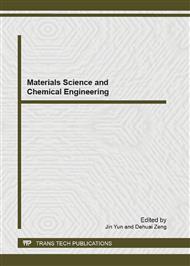p.645
p.650
p.656
p.662
p.667
p.672
p.678
p.682
p.689
Significance and Expression of Heat Shock Protein 72 and Glycoprotein96 in Human Gastroenterological Cancers
Abstract:
Heat shock protein 72 (HSP72) and glycoprotein 96 (gp96) are highly expressed in cancer tissues. Recent studies indicate the possible roles of HSP72 and gp96 in the development and progression of gastrointestinal carcinomas but detailed information is still ambiguous. The aim of the study is to investigate the correlation between clinicopathology and expression of HSP72 and gp96 in human common gastroenterological cancers- esophageal squamous cell carcinoma, gastric adenocarcinoma, colonic adenocarcinoma and hepatocellular carcinoma. The results showed that HSP72 and gp96 were highly expressed in gastroenterological carcinomas. HSP72 and gp96 were mainly stained in cytoplasm. HSP72 and gp96 expression were significantly associated with the presence of tumor infiltration, lymph node and remote metastasis. The results indicate that there exists a significant correlation between the expression of HSP72 and gp96 and the progression of gastroenterological carcinomas.
Info:
Periodical:
Pages:
667-671
DOI:
Citation:
Online since:
May 2013
Authors:
Price:
Сopyright:
© 2013 Trans Tech Publications Ltd. All Rights Reserved
Share:
Citation:


